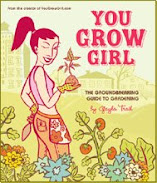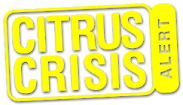My family is part of a church group here that focuses on family. They do not only incorporate religious studies in their gatherings every week, but they also teach how to take care of your family. Everything from paying off debt to how to prepare and be prepared.
One of their lessons is how to stockpile for future emergencies. I was surprised when I read the pamphlet. Keeping cash on hand. Paying off debt and setting aside the credit cards. Making sure to pay bills as they come in. Being on a budget. It is something that we are not taught in school. Something significant that they teach is the rotation of food on your shelves.
Now, we've always had a nice stockpile of certain things. Things we use on a regular basis that we buy a lot of while it is on sale at the grocery store, farmers market and the bulk store. We have a food saver that we use a lot to store items that come in bulk so that we can handle it better and use it as we go instead of having to worry about moths hatching in the 20 pounds of flour sitting in the back room.
I've been thinking about this more and more since Patti's current ezine issue came out and one of the articles was about taking care to be prepared. The author of the article proclaimed she had enough money in the bank to take care of business for 6 months and I thought "Wow! I thought it was good to have two!" But the more I think about it, the more I realize that she is absolutely right. The more the better.
But it isn't just the fundage sitting in the bank or the wad of cash hidden under the mattress. It is more than that. It is the list of things that we have on hand that will see us through the hard times that are ahead. And I thought I'd jump on that band wagon on the importance of being prepared like Cynthia McKenna from Patti's ezine, (be patient, this article isn't up just yet, Patti will get it up shortly, make sure to subscribe so you get it before it goes up on the site) or like the posts from Down to Earth, one of my favorite blogs to read.
Taking stock.
What do you use the most? It is an important question. Getting out there and buying a bunch of stuff that you might kinda eat won't do it, because while that is sitting around collecting dust, the stuff you do use is still being used and replaced, used and replaced instead of being on hand. Having two children, we have a fairly healthy appetite for all sorts of things that we need and the idea here is to take a small amount of money and stock just those things that you will need the most.
Storage.
I've broken it down into the following categories. Shelf stable items and Jar or canned items. Frozen items. Vacuum sealed items.
Shelf stable items are the things you buy right off the self that do not require cooling to stay good. Honey, soy, teryaki, marinades, salsa, salad dressings, ketchup, yellow and brown mustard, bouillon, pan cake syrup, balsamic vinegar, flavored vinegars, cooking oils, peanut butter. Most of this comes sealed so that it has a long shelf life. Canned and jar items like peanut butter, jam, jelly, preserves, stocks, vegetables will all do well for long periods of time as well because they are canned in a process.
Frozen items include things like meat and bread but it also means that you can buy a ton of cheese and butter and put that into the freezer as well. We have two freezers. One for meat and one for everything else. I keep vegetables, butter, cheese and bread in the smaller of the two and in the larger, the side of beef we purchased and meat that I find on sale at the grocery store.
Vacuum sealed items. I buy a lot in bulk because it is cheaper and I spend less money in the long run. Spending $20 on bulk culinary herbs that I didn't have room to grow or use during off season makes a big difference. Thyme, rosemary, basil, black pepper, marjoram, coriander, cilantro, savory, mustard seed, and a lot of other herbs I purchased through my favorite bulk herb store, herbalcom.com.
Compare it to the price at the grocery store. What I would pay for 1/2 oz to 1 oz at the store, I can pay for a pound from herbalcom. Doesn't it make more sense to buy it by the pound? When I got them, they came in these wonderful blue bags, but that wasn't a good way for me to keep them stored so I sealed them all in smaller packages with the vacuum sealer. Things like whole rosemary don't stay sealed in those packages for long as they making holes in the bags as the package becomes hard from the absence of air so they are stored in jars instead.
I also do that with the rice, flour, cornmeal, oats and other items that I can buy in bulk. It saves my shelf space for jars and bottles of shelf stable items. I keep them organized in bags that I can hang from shelving in our storage area and in boxes for what we don't need immediately.
Use.
As the container in the kitchen is depleted, it is replenished from the shelf or bags from the food storage. As the bags are depleted, the boxes come open and replenish. As the boxes are depleted, we buy more to replace.
It is a simple system and in the house we live in now, we are cramped for space so every centimeter of space is used to its maximum. And with our impending move, we have bought less to save on the transporting costs. If I'm moving a bunch of food that I can replace after I get there, I'm spending more in gas, which I don't want to do. My shelves have never been so bare but I'll have less work to do because I won't have to move it. It's a simple system that has worked for us for several years and has kept us from sinking when we had something big come up that we were not expecting.
How to do it?
Take $10 and buy it while it is on sale. Take $20 if you can. You've spent less and you've got a lot to tide you over. Go through and make a list of all the things that you seem to run out of and stare at the bottle balefully wishing you could squeeze that last drop out. Those are the things you need to buy. We go through a phenomenal amount of Worcestershire Sauce at my house. We use it for everything from a sauce for dipping steak to marinades. I buy it in large bottles at the bulk store and we never have to worry about it because I take inventory of items like that frequently to make sure that I don't get down to my last bottle and then end up staring at the bottle balefully wishing I had more.
Excel is your friend.
I have excel sheets for everything! Bills and costs and budgets and storage lists. I keep one big file with a master list of all of these on different tabs to make it easier. I have put in time to color code and set it up so that it is easy for me to read and easy for me to spot something that might need to be replaced. I carry my lap top into the storage area and check numbers against quantity. It only takes a few minutes and I find that it gives me a sense of accomplishment. If you don't have lap top, you can print these out and check them off and then update your sheet.
But keeping yourself organized is important. Planning on what you're going to buy and how much you can set aside to buy it. Meal planning can save a lot of time and keep the hassle and frustration of not having something on hand that you need. Keeping an inventory to monitor what you have and what you need is helpful. Build your inventory as you go and keep up with how much you put into it so you can see how much you are saving in the long run, it will help you stick to this if it is new to you.
Running a household can be difficult, but if you and your family work together to minimize the little nuisances that can crop up, then you will find that everything will go smoothly. My children help me in the inventory, they read off the labels and count the amounts and then we make it a group effort to keep up our inventory. Not only do I get help, but they are learning something valuable from me to help them when they are on their own. It will be second nature to them as adults and maybe will keep them from making the same mistakes I made when I was figuring all of this stuff out.
Take stock. Make lists. Set aside a small amount. Buy on sale. Organize your stores. Keep an inventory record. Know how much you're spending and saving. Plan.
This works for more than just food. Toilet paper, paper towels, tissue, shampoo, soap, deodorant, cleaning supplies, toothpaste. Everyday objects too, toothbrushes, bathing sponges or scrunchies and dish washing sponges or scrunchies, ect. If you think about things that you use on a regular basis and then spend a little on them, you'll find you'll have more money in the future.
Make your own. I have posts about stuff like this throughout. Cloth Swiffer Pads. Making your own furniture polish. Household cleaners made of baking soda, vinegar, and borax. Make your own handwipes. A lot of things that can be made at home with things that you have on hand that will cost you less money and give you a chance to be harsh chemical free.
Saving money is more important now than ever. We have left the era of availability behind and are moving into a future of uncertainty. Take steps to make sure that you aren't one of the families out there that is in desperate need by doing a few small things to help keep you comfortable in the future!
Packera aurea Bloom Combos I Hate
13 hours ago












0 comments:
Post a Comment